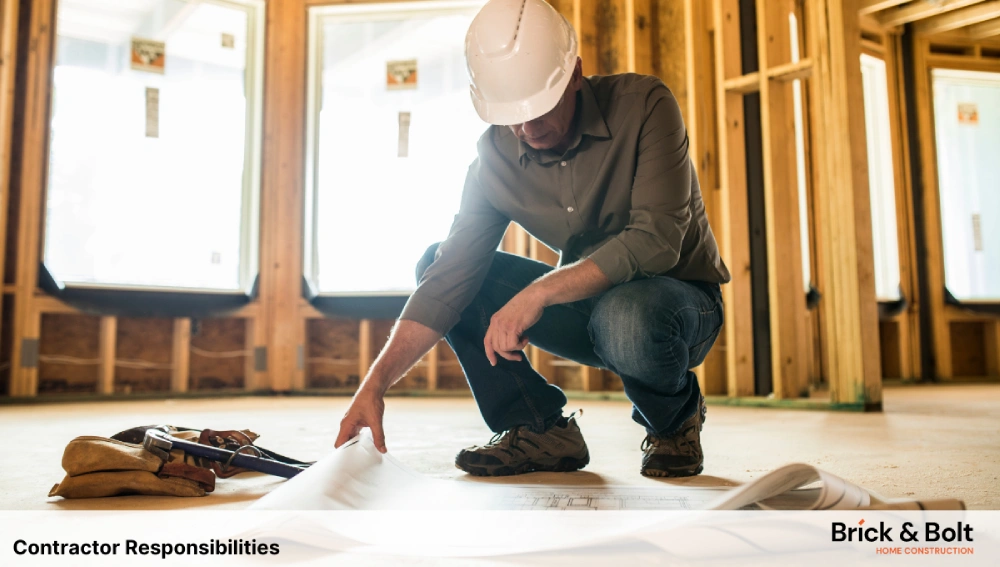If you have decided to build your home, the first thing you will do is look for a best construction company or contractor who can use their expertise to help you build your dream home.
After discussing the budget, design plans, and other aspects of the construction, you and your contractor will be required to sign a House Construction Agreement. This agreement is signed to protect the interests of both parties and ensure the process runs smoothly.
In this article, we will discuss in detail the purpose of the agreement, the responsibility of the contractor and owner, and how to resolve a conflict between the two parties.
Purpose Of The Agreement
A House Construction Contract Agreement is a legally binding document that you and your contractor should sign before starting the construction. This document will outline all the terms and conditions you and your contractor have agreed upon and act as a roadmap for the entire project.
Below are the key elements that will be included in the agreement.
- The details of the project, including the location, scope of work, tentative completion dates, architectural plans, design, material, etc.
- Contract price and payment schedule, including the total price of the project and the payment schedule detailing when and how much will be paid to the contractor.
- The responsibilities of both the contractor and the owner in this project.
All these, along with some other details, will be present in the agreement, which both you and your contractor will have to sign before starting construction works.
This document establishes a clear and legally binding agreement between you and the contractor and covers the following purposes.
- To protect the interests and rights of both parties.
- To prevent any misunderstanding or confusion during the construction process.
- To ensure a smooth and efficient construction process.
- To make the process fair for both parties and hold them accountable.
Contractor Responsibilities

Both you (the owner) and the contractor have certain responsibilities that you need to fulfill during the construction process, and all this will be detailed clearly in the House Construction Agreement. Below are the responsibilities of the contractor.
- Overseeing the entire construction process, including its planning, execution, and completion.
- Hiring and managing workers for tasks like plumbing, roofing, electrical work, etc.
- Ensuring the standards of the construction are met and completed by the scheduled time.
- Regularly communicating with the owner regarding the progress of the project and addressing any concerns.
- Ordering and paying for material required for the construction.
- Maintaining clear documentation of the construction, including daily logs, purchase receipts, and change orders.
- Providing the owner with accurate and timely invoices.
Owner Responsibilities
Alongside the contractor, you, as the owner, also have certain responsibilities, such as the ones below.
- Providing the necessary funds on the agreed-upon time for construction purposes.
- Selecting your desired materials, finishes, fixtures, etc., within the agreed-upon budget.
- Making timely decisions regarding any changes in the original plan.
- Obtaining required permits and approvals from the local authorities before beginning construction.
- Providing unrestricted site access to the construction and providing them with utilities like electricity and other necessities.
Process For Resolving Disagreements Between Owner And Contractor
In the construction process, there are bound to be disagreements. Resolving these disagreements between you and the contractor is essential for a smooth construction process. Below are some ways to resolve a conflict between you and your contractor.
- The first attempt to resolve conflict is to have a direct face-to-face conversation with your contractor. This can help you clear misunderstandings and come up with a mutually agreeable solution.
- Most House Construction Agreements have a pre-defined dispute resolution clause agreed upon by both parties in case of disputes. This clause might involve resolving conflict through mediation or arbitration.
- The last step in resolving disputes is litigation: taking the dispute to court and resolving the conflict legally. This is a long process and is expensive, so it is usually chosen as a last resort.
Conclusion
This is what a House Construction Agreement is and what will be involved in the agreement. If you don’t understand certain terms and conditions of the agreement, it is always best to consult a legal professional before signing the document.
FAQs
A House Construction Agreement is a legally binding document that the owner and their contractor should sign before starting the construction. This document will outline all the terms and conditions both have agreed upon and act as a roadmap for the entire project.
Here is what you need to do while making an agreement with a contractor.
Outline the service required
Outline the duration of the work
Outline payment terms
Outline confidentiality agreement
Consult a lawyer to ensure the agreement does not have any loopholes.
Yes, a construction agreement is a legally binding document signed between the owner and the contractor. Any mishandling or not abiding by the terms can make you legally accountable.

